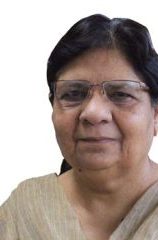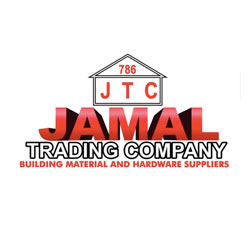In conversation with
Mrs Jamal Ahmad
CEO | Jamal Group of Companies

Tags: africa, Botswana, infrastructure, Manufacturing and Industrial, SADC
FDI Spotlight: Where does your pride for Botswana come from and why did you stay and make it your home?
Jamal Ahmad: The concept of making Botswana our home came about in 1979. My husband was offered citizenship, and he took it.
It was not an easy decision as we had to surrender our Indian passports. However, we decided based on how amazing the Batswana (citizens of Botswana) are and because we knew our children would get a good education here.
Once we decided we built a house and eventually set up the business. In fact, the same day that Jamal Trading was established my younger son was born. Botswana is special to us; the company started with so little materials and so few people, but we have been able to build a good business and help many people along the way.
One of the first things people need when they start their lives is a house. I was pregnant with my younger son when we built our house, and I did a lot of the heavy lifting myself. That I could and still can help people build what is their first home is special. It is a good way of encouraging people.
I often tell people that even though they are going through a difficult time in life if you can build a house – with your own hands or spend your hard earned money to have it built – you can do anything.
Before you were involved in infrastructure development you were a teacher. As an educator how do you think the Botswana people, especially the future generations, can be encouraged to have the same entrepreneurial spirit and developmental mindset that the people had when the country became independent?
Jamal Ahmad: At Jamal Trading we give our employees a lot of training and education, not only to give them the knowledge but also to motivate them. Educating people is giving them power and confidence.
I also believe in teaching people in the right way. For example, my son speaks on the radio and TV stations here about how to build a house; he talks about everything from what you would need to buy, how much it will cost to how long it might take. We train our employees in the same way.
We also work closely with one or two technical universities by offering students within the construction space internships. This way it is guaranteed that they gain the much needed practical experience, which is the only aspect of many government training programmes that are lacking. Future workers need to work with the materials, whether they are bricklayers, carpenters or painters, confidently. What is very important as well is that they know how to work with people.
Your customers are never just that. Especially in our industry in Botswana, the customers are people who either need a home or who want to improve what they have. To be able to give them the best possible service. That is what we aim for and what we aim to teach.
From 1966 to the early 2000s, Botswana was one of the great African success stories in terms of the development of the people, with continued improvement of the quality of life. This is when you excelled and expertise in the construction and manufacturing sector; how have you seen the improvement of the quality of life for the Batswana and how do you see this development progress?
Jamal Ahmad: When we first came to Botswana the people were very focused on nation-building. Everyone was talking about it and working towards it.
The determination to build the Botswana nation led the country to where it is now. The policies put in place by the government, many of which are still in place made Botswana strong and stable and made everyone feel safe. The investments received from outside and those made by Botswana itself are the basis of the development.
Nowadays we have many experts and educated people in Botswana; this was not always the case. The first university was only built in 1976, and today we have a thriving community of well-educated individuals. It is a testament to how passionate the people here are about building themselves up and improving not only their own lives but that of future generations.
How have you capitalised on this pride and nation-building as an industrial leader at Jamal Trading?
Jamal Ahmad: We were welcomed with such warmth and friendliness when we first arrived in Botswana that it became a crucial part of how we do business. We had no real experience or knowledge of Botswana but the business community welcomed us with open arms and helped us get to know the business environment.
We were working for the government, so we were more involved with the policies and planning. However, we decided that we wanted to do more and help the Botswana people. We supported the government by supplying building materials to the companies who won the tenders for the construction of buildings and houses. It was very important to us we supply them with the best possible building materials at the cheapest cost.
I wanted to help the poor as much as I could; they were living in shacks when they deserved proper houses. Therefore, because they did not pay the full amount for a house or even the material to build a house at once, I would make a deal that they pay me a portion of the full amount every month. Soon there were people coming from all over Botswana, and to this day we still have that policy in place.
That is how we built the business and build our customer base. The customer brings the plans of whatever it is they want to build and we sit with them to work out what is needed and how much it would cost. Nowadays the banks approve loans for our customers, taken out on our behalf; when I first did this that concept did not exist.
Naturally, we are very selective for these customers. Even though we mainly only advise them, we have to be as sure as we can be that they can pay for building their houses.
According to the 2017 World Economic Forum’s Africa Report, Botswana is the fourth most open and competitive country in Africa. However, Botswana has better levels of education, governance and macroeconomic policy, falling behind in terms of infrastructure development. Do you believe you still have a role to play in Botswana’s nation-building in 2017?
Jamal Ahmad: Yes, we still have a role to play. However, I also think we can be very proud of what we have done in Botswana until now. Given than Botswana is a landlocked country, which means trading and developing the economy faster is more difficult, we have done a lot in terms of infrastructure development.
Other business leaders in Botswana will agree that despite Botswana’s position, we are doing well. Compared to countries like Namibia and South Africa, with the ocean surrounding them, Botswana is progressing well, especially if you consider we pay more for the materials or products we import. I believe if Botswana had access to its own port, the country would do extremely well.
That is also why infrastructure development is so important for us. We need to trade with more countries next to us to become stronger and develop more.
